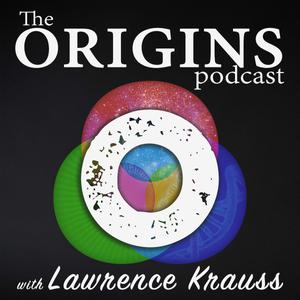
The Origins Podcast with Lawrence Krauss
Lawrence M. Krauss
Science, Culture, Reason, Public Policy, & Fascinating Ideas
- 1 hour 26 minutesJennifer Doudna: Scientist and World Changer
Jennifer Doudna changed the world. She didn’t do it intentionally. She pursued her curiosity about the structure and functioning of RNA as a research scientist, one who had been trained by some of the most impactful geneticists at the time, including two Nobel laureates. In the process, however, she and her collaborators discovered a genetic tool that has dwarfed all others for its potential to change both the human condition, but also what it may mean to be human. I am referring of course to CRISPR, the tool that Jennifer Doudna and Emmanuelle Charpentier helped develop and for which they were awarded the Nobel Prize.
In our in-depth conversation we covered the scientific origins of Jennifer’s discoveries, and some of their possible implications. In a time when there is a misplaced notion that support for scientific research needs to be applied directly for certain goal-oriented activities, it is refreshing to have such a clear example of the benefits of fundamental research for our society, along with the need to prepare our minds for the possibilities of the future. It is exactly what the Origins Podcast, and the Origins Project Foundation are designed to highlight—the joy, benefits, and challenges of human intellectual inquiry for our society and our future. It was a pleasure and privilege to spend 90 minutes discussing these issues with this world-renowned biochemist and advocate for science.
Our conversation was both a tutorial about modern genetics, and also an opportunity to discuss issues that society as a whole will have address as we come to grips with the new power of science in this century. With great power comes great responsibility, and I hope discussions such as the one I had with Jennifer will provoke and enlighten. Enjoy.
As always, an ad-free video version of this podcast is also available to paid Critical Mass subscribers. Your subscriptions support the non-profit Origins Project Foundation, which produces the podcast. The audio version is available free on the Critical Mass site and on all podcast sites, and the video version will also be available on the Origins Project YouTube.
Get full access to Critical Mass at lawrencekrauss.substack.com/subscribe15 January 2025, 10:41 pm - 1 hour 39 minutesA Hitchmas Gift For All -Audio Version
A year ago, John Richards the head of the Atheist UK approached me about the idea of celebrating Christopher Hitchens with a Hitchmas event, near Christmas, and on or about the anniversary of Christopher’s death, on Dec 15, 2011. I realized that to do it right would require time and organization, and the proper panelists. I was thrilled that Christopher’s friends and mine, Stephen Fry, Richard Dawkins, and Douglas Murray agreed to be part of the event, and that the HowTo Academy, which organizes wonderful events in London, several of which I had done before, agreed to coordinate the logistics with The Origins Project Foundation. A year later, the sold-out event happened, and we decided in advance to record it appropriately, with 5 cameras, and to have Gus and Luke Holwerda, who directed and filmed The Unbelievers, and with whom I began The Origins Podcast, edit the final product.
As a special Holiday gift, we are making the advert free video version available to both paid and free subscribers here on Critical Mass. This post has the audio version for those who prefer that. If you want to watch the video, open the other Critical Mass post we are releasing this morning. Our YouTube channel will also host the video, and I encourage you to subscribe to that channel as well if you wish. No matter how you watch it, or listen to it (we will make the audio available on iTunes etc), we hope you find this set of reminiscences and the ensuing discussion a wonderful reminder of a remarkable man, and that it inspires you as much as Christopher inspired us. Happy Holidays to you all.
Lawrence M. Krauss
Get full access to Critical Mass at lawrencekrauss.substack.com/subscribe25 December 2024, 7:22 pm - 2 hours 1 minuteJeffrey Sachs on Diplomacy, Conflict, and the Path to Peace
I had the privilege of welcoming my friend Jeffrey Sachs back to the podcast. Jeffrey joined me earlier this year, and given the unfolding crises around the world, I thought it was a good time to sit down again and talk current events. I expect our conversation will generate disagreements from many listeners. Open discussion of sensitive issues however is important and one of the things that both Critical Mass and The Origins Project Foundation defend and promote.
Jeffrey is one of the most incisive thinkers I know. His career has spanned academia, global governance, and public advocacy, and his work has had a profound impact on economics and diplomacy. As one of the youngest tenured professors in Harvard’s history, he established himself as a brilliant scholar early on. But he didn’t stay confined to academia. For nearly two decades, he was a senior advisor to the UN Secretary-General, tackling some of the world’s most complex challenges.
Our conversation this time focused on two hot-button topics dominating headlines: Ukraine and Gaza. On Ukraine, Jeffrey traces the roots of the conflict back to the U.S.’s decision to expand NATO eastward—a move he argues broke assurances given to Russia in the early 1990s. He described how this decision sowed mistrust and led to today’s crisis. Jeffrey believes diplomacy is the only viable solution and floated a bold idea: a direct negotiation brokered by none other than Donald Trump, to secure Ukraine’s neutrality and end the bloodshed. I presented to him the concerns of a Ukrainian journalist who has asked me to present Jeffrey with various questions. the concern that a diplomatic solution will embolden Russia to more dramatic land grabs is certainly real in the Ukraine.
On Gaza, Jeffrey’s criticism was equally sharp. He views the Israeli government’s policies toward Palestinians in the occupied territories as untenable and unjust, likening them to apartheid. He insists that a two-state solution, grounded in international law, is the only way forward—a sentiment shared by much of the international community but ignored by Israel’s leadership, which he argues is using the United States as its handmaiden to perpetuate policies designed to create an Israeli state encompassing much or all of the territory in dispute.. For Jeffrey, the failure to pursue this path perpetuates unnecessary suffering and cycles of violence.
We didn’t agree on everything. I’m skeptical about the practicality of some of his solutions, and the basis of some of his arguments about the obstacles to peace. Nevertheless, we agree on two things. Diplomacy is always preferable to war, and a two-state solution is the only solution that might, in principle provide long term stability in the Middle East—even if the practical route to get there and ensure Israeli security in the process is rife with obstacles . Whether we agree or disagree, our conversations are always rich, nuanced, and thought-provoking. Jeffrey’s willingness to address hard truths, even when they provoke controversy, is one of the reasons I value his perspective so much. That and his encyclopedic knowledge of history and economics.
In a world so polarized, reasoned dialogue is more essential than ever. My discussion with Jeffrey reaffirmed that respectful dialogue is not just possible but necessary if we are to make progress on the complex issues of our time. Once again, that is one of the purposes of our Foundation, and this podcast. I hope you find this conversation as stimulating as I did.
As always, an ad-free video version of this podcast is also available to paid Critical Mass subscribers. Your subscriptions support the non-profit Origins Project Foundation, which produces the podcast. The audio version is available free on the Critical Mass site and on all podcast sites, and the video version will also be available on the Origins Project YouTube.
Get full access to Critical Mass at lawrencekrauss.substack.com/subscribe18 December 2024, 6:14 pm - 2 hours 51 minutesNicholas Christakis: From Social Networks to AI, Special Thanksgiving Podcast
Nicholas Christakis is a Renaissance Man, with whom I have wanted to have a conversation for some time. There was so much to talk about with him, and each item was so fascinating, that we barely scratched the surface, even in the lengthy discussion we had. This is a great Thanksgiving Day listen.. instead of football games! One can get a sense of the breadth of his activities by considering his positions at Yale University. He is Sterling Professor (the highest endowed chair at Yale) of Social and Natural History, as well as Director of the Yale Institute for Network Science, and Professor in the Departments of Statistics, Biomedical Engineering, Medicine, Ecology and Evolutionary Biology, and in the School of Management!
Nicholas’ personal history is almost as fascinating as his academic accomplishments. Born in New Haven to parents who were graduate students at Yale (his father was a student of the notorious Gregory Breit, about whom I heard many stories when years later I became a Professor in that same department, and his mother was a graduate student of Nobel Laureate Lars Onsager), he moved back to Greece when his father had to return for military service, so Nicholas’s first language was Greek. His parents moved back to the US several years later, and Nicholas grew up in the US, returning to Yale University to study biology. All throughout his childhood he grew up under the shadow of his mother’s fatal illness, and he and his brothers all became doctor’s in response. But while in medical school, the bug for scientific research caused him to pursue both a Masters degree in Public Health and eventually a PhD in Sociology.
Moving to the University of Chicago, Nicholas focused on caring for dying patients, and exploring how their partnerships affected their health as well as that of their partners. This began an eventual transition to studying not pairs of individuals, but networks of human beings. His laboratory has done groundbreaking experimental work studying how networks of humans operate and how one might improve their functioning. To understand human networks he has also studied networks of animals including our nearest cousins, Primates.
The results of his investigations informed his most recent remarkable book, Blueprint, focused on the notion that evolution has endowed us to create and function in ‘good’ societies. We spent time discussing all aspects of this work, from the impacts of evolutionary biology on both human and primate societies, artificial communities, and the strange mating rituals of both other animals, and humans, all of which are more diverse than one might otherwise imagine. The exceptions however, prove the rule that a ‘social suite’ of characteristics, including cooperation, love and partnership, leadership and other factors, can produce a successful society. Along the way we discussed topics that appear intuitively surprising, such as culture within animal groups, and how behavior can ultimate affect genetics, something that sounds Lamarckian , but is instead a wonderful example of natural selection. We discussed the philosophical question of the nature of ‘good’, and whether one can indeed get ‘ought’ from ‘is’, as David Hume famously questioned, and ended with a discussion of how AI will affect human societies.
It was truly a fascinating privilege to have this discussion, and whetted my appetite for further conversations with this lovely and remarkable man.
As always, an ad-free video version of this podcast is also available to paid Critical Mass subscribers. Your subscriptions support the non-profit Origins Project Foundation, which produces the podcast. The audio version is available free on the Critical Mass site and on all podcast sites, and the video version will also be available on the Origins Project YouTube.
Get full access to Critical Mass at lawrencekrauss.substack.com/subscribe28 November 2024, 5:37 pm - 1 hour 34 minutesCharles Moxley Jr: Nuclear Weapons are Illegal
Charles Moxley Jr has spent over 35 years as a litigator in New York, in large and complex commercial, securities, insurance and other cases throughout the United States. He is perhaps the last person one might imagine could bring about the end of a continually proliferating international presence of nuclear weapons. Yet personages as eminent as the late Robert S. McNamara, and Cyrus Vance, as well as nuclear security expert physicist Kosta Tsipis think he might have hit a promising line of attack to quell an ever growing international arsenal of nuclear weapons threatening just just world peace but civilization itself.
Moxley analyzes the question in light of the July 1996 opinion issued by the International Court of Justice, as well as the law as articulated by the United States itself. Using generally recognized facts as to the characteristics and effects of nuclear weapons Moxley Jr concludes that the use of nuclear weapons is "per se" unlawful.
To back up his arguments Moxley Jr wrote a comprehensive treatise, in excess of 800 pages, to examine both the International Court of Justice’s perspective, and also the legal claims made by the United States, in light of the known characteristics of nuclear weapons. His book, which took 10 years to produce in its first edition, was reviewed by major figures in the field, has recently been updated, and released as a two-volume set. It was the new release of these books that prompted our conversation.
In our discussion we unpacked and clarified the various legal issues, as well as the rather strange and one might say absurd position of the United States regarding the effectiveness of their own nuclear weapons arsenal. The result is what can be a clear primer that can add a new perspective regarding the sanity of a world where over 10,000 nuclear weapons exist, with over 2000 such weapons kept on hair trigger alert, and perhaps encourage your own activism in this regard. At the very least it will reveal the remarkable circumstances surrounding the 1996 International Court of Appeals proceedings, and a legal case few outside of experts have ever heard about. I enjoyed the discussion and learned a great deal, and I hope the same will be true of you.
As always, an ad-free video version of this podcast is also available to paid Critical Mass subscribers. Your subscriptions support the non-profit Origins Project Foundation, which produces the podcast. The audio version is available free on the Critical Mass site and on all podcast sites, and the video version will also be available on the Origins Project YouTube.
Get full access to Critical Mass at lawrencekrauss.substack.com/subscribe4 November 2024, 6:14 pm - 2 hours 17 minutesHeather Mac Donald: When Race Trumps Merit and Reshapes Culture
Heather Mac Donald is never one to back down from controversy, and that’s exactly what makes our discussions so engaging. She’s sharp, opinionated, and unflinching when it comes to tackling issues many prefer to avoid—whether it’s race, culture, or the idea of meritocracy in modern society. This is the third conversation Heather and I have had for the show. With the release of her new book, When Race Trumps Merit, it felt like the perfect time to bring her back to explore how the focus on race and identity politics is reshaping standards across academia, the arts, and medicine.
Of course, Heather and I don’t always see eye to eye. Throughout this episode, you’ll hear us wrestle with some points from very different perspectives. But that’s what makes these conversations so worthwhile. Origins isn’t just about interviews; it’s about true dialogue—exchanges where ideas are challenged, examined, and questioned from all angles.
In our discussion, we span a wide range of topics, from Heather’s background in classical literature to the current culture wars affecting our institutions. And while our differences come through, it’s these disagreements that add depth and substance to the conversation. Especially now, when polarization is at an all-time high, having open, respectful dialogues is more important than ever.
Whether you find yourself agreeing with Heather or not, I hope this discussion will inspire you to think more critically, challenge assumptions, and look more deeply at the issues shaping our culture today.
As always, an ad-free video version of this podcast is also available to paid Critical Mass subscribers. Your subscriptions support the non-profit Origins Project Foundation, which produces the podcast. The audio version is available free on the Critical Mass site and on all podcast sites, and the video version will also be available on the Origins Project YouTube.
Get full access to Critical Mass at lawrencekrauss.substack.com/subscribe4 October 2024, 10:39 pm - 2 hours 26 minutesSaul Perlmutter: Third Millennium Thinking
Saul Permutter won the Nobel Prize for his eventual role in the discovery of dark energy. In 1996 when I was lecturing at LBL he bet me that he would show dark energy didn't exist. His group had been measuring supernova distances for years, in hopes of determining the deceleration rate of the universe. Instead, after recalibrating some of his earlier data, his group and an independent group discovered the universe was actually accelerating.
That is the beauty of science, it supersedes any individual prejudices, and scientists actually change their minds if the data requires it. This is one of the many important characteristics of science that Saul and his collaborators discuss in their recent book, Third Millennium Thinking. It is a good read, full of useful examples about how scientific thinking is important in the world beyond just science.
Saul and I had a lively conversation about science, the scientific method, and his own experiences as a scientists. It was an enriching and enlightening discussion, and I hope you enjoy it as much as I did.
As always, an ad-free video version of this podcast is also available to paid Critical Mass subscribers. Your subscriptions support the non-profit Origins Project Foundation, which produces the podcast. The audio version is available free on the Critical Mass site and on all podcast sites, and the video version will also be available on the Origins Project YouTube.
Get full access to Critical Mass at lawrencekrauss.substack.com/subscribe18 September 2024, 4:00 pm - 24 minutes 50 secondsOrigins Podcast: A Call For Support To Save A Family
PLEASE CONSIDER DONATING NOW TO SAVE THIS FAMILY!
There are many tragedies in Afghanistan, and thousands of people who need help. We cannot right all the wrongs, but we can save these 8 people. We can save a woman who fought for human rights and now faces execution in Afghanistan if she were to return. We can save 5 young girls who have no access to education, or freedom if they were to return to Afghanistan. Already, during the past 2 years in Afghanistan, they have learned much English, and one of the young girls has been selected for a prestigious online scholarship to study at an English speaking Afghan University now run outside of that country. We can do something concrete and positive to help them.
It isn’t everything, but it is something. I can tell you from my last experience of saving the life of a young girl from Afghanistan so she could study in the United States and eventually pursue and advanced degree that not a day goes by when I don’t think about how that feels to me like one of the most important things I have done.
I hope you will consider donating, and if you cannot, that you will pass this podcast along to others who may be interested.
DONATIONS:
The JIAS has kindly created two different direct PayPal donation links.
* The first is specifically linked to the family, and if for some horrible reason the family were not able to arrive in Canada under this program, all funds would be returned to donors. Because the funding relates to this family uniquely, any donations made to this site are not tax deductible for Canadian residents. This is the preferred site for all those who are not concerned about receiving a Canadian tax receipt for their donations.
Here is the direct link: https://www.paypal.com/donate?campaign_id=VBKBGBFZ5G5FE
* The second is a link to a fund which will provide for the family if they arrive, but if for some reason they cannot arrive, the funds will not be returned but will be allocated to others on the sponsor’s waiting list. Donations to this fund are however tax deductible for Canadian residents, and donors will receive a tax receipt.
Here is the link: https://www.paypal.com/donate?campaign_id=H49YGR3E5QMBY
Get full access to Critical Mass at lawrencekrauss.substack.com/subscribe9 September 2024, 4:38 pm - 2 hours 28 minutesHelen Pluckrose
Helen Pluckrose has been a formidable voice in the cultural and intellectual debates surrounding critical social justice, liberalism, and free speech. I've admired her work for some time, particularly her rigorous analysis of the philosophical underpinnings of these movements. In this episode, I had the pleasure of speaking with Helen about her new book, "The Counterweight Handbook," which offers practical strategies for those navigating the challenges posed by critical social justice ideologies in the workplace and beyond.
As with all Origins Podcasts, we spent some time learning about Helen’s own origins, which are just as compelling as her work. From her early years, where she balanced a career in care with a passion for English literature, to her later involvement in the Grievance Studies Affair, which exposed the weaknesses in certain academic fields, Helen has consistently demonstrated a concern for the wellbeing of others and a commitment to liberal values and intellectual honesty.
In our discussion, we covered the origins and evolution of critical social justice, the impact of postmodern thought on modern social theories, and the ongoing challenges of promoting free speech in an increasingly polarized world. Helen shared insights from her work with Counterweight, an organization she founded to support individuals facing ideological pressure in their professional lives. We worked through her new book, which provides remarkably useful guides for dealing with challenges that misplaced critical social justice pressures might impose upon you in the workplace and elsewhere.
This conversation was both enlightening and engaging. It offers valuable perspectives for anyone interested in the intersection of culture, politics, and philosophy. Helen is a wonderfully clear thinker, a sympathetic presence and a powerful advocate for the principles of liberalism, and it was a pleasure to spend time discussing her work and writing. I hope you find this episode as insightful and useful as I did.
As always, an ad-free video version of this podcast is also available to paid Critical Mass subscribers. Your subscriptions support the non-profit Origins Project Foundation, which produces the podcast. The audio version is available free on the Critical Mass site and on all podcast sites, and the video version will also be available on the Origins Project YouTube.
Get full access to Critical Mass at lawrencekrauss.substack.com/subscribe4 September 2024, 4:00 pm - 1 hour 57 minutesSolving one of cosmology's biggest conundrums with Wendy Freedman
Wendy Freedman, the former director of the Carnegie Observatories and now distinguished professor at University of Chicago, has been a leading figure in observational cosmology and astronomy for over 30 years. I have known her as a friend and colleague, and have learned much from her over the years, and was very excited to be able to snag her amidst her busy schedule to record a podcast a week or two before the release of a new blockbuster result her team had produced. I am very happy that Critical Mass listeners will be among the first to get the detailed lowdown on the likely resolution of a problem that has been plaguing cosmology for the past decade.
In the 1990’s Wendy led a major international team of astronomers in carrying the Hubble Space Telescope Key Project. The Hubble Space Telescope (HST) was named in part because of this project, to establish the distance scale of the universe and measure its current expansion rate, a quantity not coincidentally called the Hubble Constant, first measured by Edwin Hubble in 1929.
Since that time, different groups have measured this most important single observable in our universe and gotten widely different values. In the 1980’s and early 90’s two different groups got values that differed by a factor of 2, even though each claimed errors of less than 10%. In 2001, Freedman’s team published their result, truly accurate to 10%, and the value, perhaps not surprisingly, fell right in the middle between the previous two discrepant values.
All was good, until inferences based on the Cosmic Microwave Background, the most precise observable in modern cosmology suggested that measurements at a time when the universe was 300,000 years old, when extrapolated forward using the best current theory of cosmology today, would give a value that different from the HST value.
The difference was statistically significant, and as time proceeded, and error bars got smaller, the discrepancy between the HST (and then the James Web Space Telescope (JWST)) measurement, and the CMB measurement got more significant. Was our current model of cosmology simply wrong?
Such was the claim in various places over the past few years. Most recently, Wendy led a team to measure cosmic distances in 3 different ways using JWST, and as she describes in our discussion, it looks like the problem may now be solved, although not without leaving other mysteries.
We talked about a lot more than this though. Wendy’s background, what got her into astronomy, her experiences throughout her career, and her leadership in a new project building the Giant Magellan Telescope, what will be the largest telescope in the world in Chile.
The discussion was as fun as it was exciting. Wendy is a wonderful popular expositor, and as always, I really enjoyed talking to her. Tune in to hear, for the first time, about the newest and most important recent result in cosmology from one of my favorite colleagues and a world class scientist.
As always, an ad-free video version of this podcast is also available to paid Critical Mass subscribers. Your subscriptions support the non-profit Origins Project Foundation, which produces the podcast. The audio version is available free on the Critical Mass site and on all podcast sites, and the video version will also be available on the Origins Project YouTube.
Get full access to Critical Mass at lawrencekrauss.substack.com/subscribe21 August 2024, 3:57 pm - 1 hour 55 minutesLeonard Susskind: Strings, Quarks, Black Holes, and More.
I was very happy to finally have the opportunity to have an extended conversation for our podcast with renowned theoretical physicist Lenny Susskind. Lenny has been a friend and colleague for many years. I remember first attending a lecture he gave at a conference when I was an undergraduate and recognizing what a powerful intellect he was, and also how he combined mathematical sophistication within an intuitive framework that reminded me a bit of Richard Feynman. Years later, when I went jogging with him along a beach in California, I also discovered that, he strove for excellence in everything he did, and it nearly killed me to keep up with him.
Lenny has been involved over the past 50 years in many of the forefront developments in particle physics, including string theory, the standard model, the matter-antimatter symmetry of the universe, and the mysteries of black hole physics and quantum gravity, to name just a few. It was enlightening to explore his own intellectual development, and also his perspectives on how these major developments in physics fit into our evolving understanding of the universe.
Lenny is also an accomplished popularizer of science, something he turned to somewhat late in his career, and I learned something fascinating about what caused him to turn to writing. It was entirely unexpected. I am glad he was motivated, because his semi-popular books following The Theoretical Minimum, covering the essential ideas necessary for someone to have a grasp of modern theoretical physics, are, in my opinion classics.
Anyone who is interested in understanding how we got to where we are today, and what the key outstanding questions in theoretical physics are, and where the likely answers may be found, will find our discussion enlightening, and, fascinating. I hope you enjoy this in depth discussion with one of the most accomplished theorists around today, and one of the most enjoyable and thought provoking scientists one might hope to have a conversation with.
As always, an ad-free video version of this podcast is also available to paid Critical Mass subscribers. Your subscriptions support the non-profit Origins Project Foundation, which produces the podcast. The audio version is available free on the Critical Mass site and on all podcast sites, and the video version will also be available on the Origins Project YouTube.
Get full access to Critical Mass at lawrencekrauss.substack.com/subscribe7 August 2024, 4:03 pm - More Episodes? Get the App
Your feedback is valuable to us. Should you encounter any bugs, glitches, lack of functionality or other problems, please email us on [email protected] or join Moon.FM Telegram Group where you can talk directly to the dev team who are happy to answer any queries.
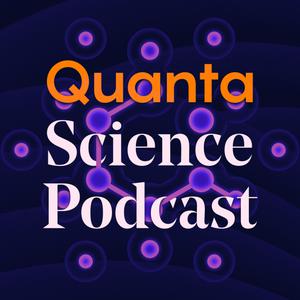 Quanta Science Podcast
Quanta Science Podcast
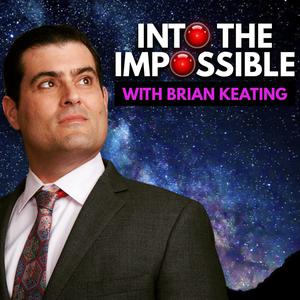 Into the Impossible With Brian Keating
Into the Impossible With Brian Keating
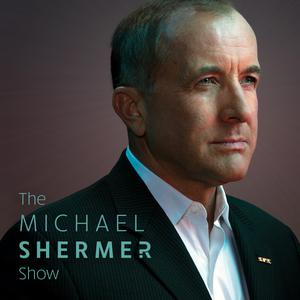 The Michael Shermer Show
The Michael Shermer Show
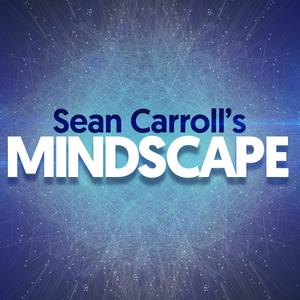 Sean Carroll's Mindscape: Science, Society, Philosophy, Culture, Arts, and Ideas
Sean Carroll's Mindscape: Science, Society, Philosophy, Culture, Arts, and Ideas
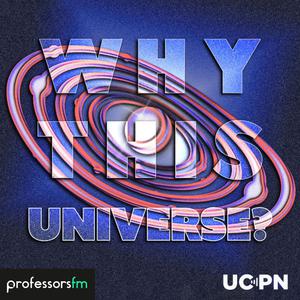 Why This Universe?
Why This Universe?
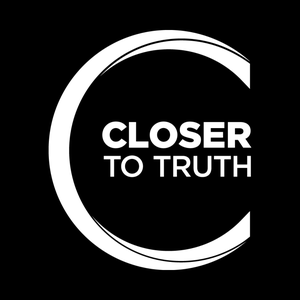 Closer To Truth
Closer To Truth